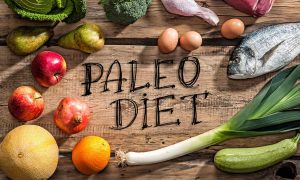Common Myths About Diet And Nutrition

|
|
With obesity rates soaring, waistlines expanding, and life expectancies decreasing instead of increasing, the simple fact is that the human race as a whole, is in a pretty bad way. What’s perhaps most frustrating of all is the fact that much of causes of why we’re in such a bad way, can actually be very easily avoided by simply making a few healthy lifestyle changes, namely those related to our diet and nutrition. We all know that in order to live a healthy life we should eat more fresh and healthy foods, but what actually constitutes as healthy, and are we actually being told all that we need to know when it comes to healthy produce? For example, some people will tell you to avoid carbohydrates claiming them to be bad for you, whilst others will tell you to embrace them and to include them in your diet on a daily basis. Who do you listen to? There are many myths and common misconceptions associated with diet and nutrition, and to help debunk them once and for all, here’s a look at some of the most common examples.
All saturated fat is bad for you

Fats are very much the topic of many heated debates in the health and fitness community, with some people swearing by them, and others telling you to avoid them like the plague. In reality however, there are good fats and there are bad fats. Good fats are monounsaturated and polyunsaturated fats, as well as some forms of saturated fats. Bad fats are trans fats, as well as some forms of saturated fats. No, that isn’t a typo by the way, saturated fats can be considered healthy, and unhealthy for us, depending on where they come from, and how much we consume. Studies have found that not only is some saturated fat ok for our bodies, it is actually healthy and beneficial for us, depending on where it comes from. Organic eggs, coconut oil, natural unsalted butter, and grass fed meats often contain saturated fats, and these fats are considered very good for us indeed. They help regulate hormones, they improve cellular health, they boost the metabolism and they fuel our bodies. They even help lower harmful cholesterol levels and can therefore improve our cardiovascular systems. In basic terms, as part of a healthy and balanced diet, a little saturated fat from natural sources can be very good for us indeed.
Low fat diets are healthier
For decades, dieticians, personal trainer, doctors, and nutritionists used to swear by low fat diets when it came to health and well-being, with some so-called “experts” telling us to eliminate fat from our diets entirely. Nowadays however, things have changed as we’ve discovered that fats can be very beneficial for us, just take a look at the sub-heading above to see what we mean. Studies have shown that low fat diets do not reduce the risks of cancer, they do not reduce the likelihood of heart disease or heart attacks, and they do not help us to lose weight, in fact, from a weight loss perspective, consuming healthy fat sources has been found to actually speed up weight loss. The bottom line is that your diet should include plenty of healthy and natural fat sources, avoiding sugary, processed artificial produce. Look for oily fish, organic eggs, organic nuts, grass fed meat, coconut oil, olive oil, natural butter, seeds, nuts, and avocados for your primary sources of fat.
Salt is pure evil

Diets rich in sodium (salt) have been found to be very unhealthy and bad for us, with excess sodium consumption being responsible for hypertension and even heart attacks. However, recent studies have revealed that diets low in sodium, can also have numerous health risks and complications as well. For that reason, you should not cut salt out of your diet entirely. If you have heart and blood pressure issues, cutting way back on your sodium intake is recommended, but if you don’t however, consuming a moderate amount of salt each day can have beneficial effects on your health and well-being.
All sugar is also evil
Again, this is not true and is a common misconception in the health and fitness world. Though sugar can be extremely bad for us, especially if we consume too much of it, providing we keep our sugar consumption levels relatively low, we can consume it and not experience any damaging effects as a result. Excess sugar consumption can cause weight gains, it can interfere with hormone regulation, and it can lead to diabetes, but if we’re sensible and consume it in moderation, we can still enjoy a little sugar on a regular basis without experiencing any negative side-effects. Avoid sugary drinks as these are packed full of far too much sugar, and instead opt for waters flavoured with natural fruit slices perhaps. If you’re getting plenty of exercise and are following a healthy and balanced diet, a little sugar in your diet is not going to harm you in the slightest, just remember that moderation is the key, and to stay clear of sugary drinks and processed junk foods. A little jam or jelly on wholemeal bread with some natural peanut butter however, is not going to cause any real harm in the slightest.
Whole eggs should be avoided

Eggs, particularly egg yolks, have had a negative stigma attached to them for a number of decades now, and it’s only recently that experts have discovered that perhaps whole eggs are not quite as bad as they were made out to be all those decades ago. The idea behind whole eggs being bad for us was that experts believed that eggs increased natural cholesterol levels, because they contain cholesterol. This is true, they do increase cholesterol and they do contain cholesterol, but they contain good and bad cholesterol, making them much better than first thought. Not only that, but for the amount of bad LDL cholesterol in eggs to cause any harmful effects to our bodies, we would need to be consuming more than 10 whole eggs each day, which most people would never dream of doing. Most people consume 3 – 4 whole eggs a day, so the amount of cholesterol consumed will be negligible at best. Whole eggs are rich in protein, amino acids, B vitamins, minerals, and the yolks are rich in healthy fats. Simply put, if you’re looking to enjoy an omelette in the morning, two or three whole eggs will be absolutely fine.














